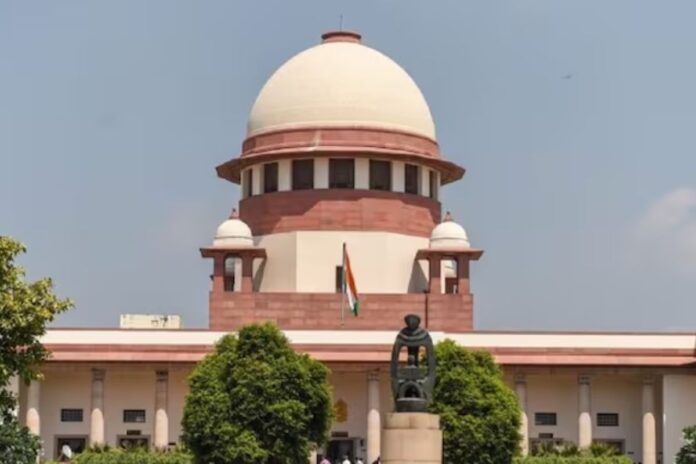The Supreme Court on Thursday issued a critical directive barring the registration of new lawsuits or the conduct of surveys involving places of worship until it delivers a verdict on the constitutional validity of the Places of Worship (Special Provisions) Act, 1991. Additionally, it instructed lower courts to refrain from adjudicating related cases or issuing orders.
The Act, enacted in 1991, mandates maintaining the religious character of any place of worship as it stood on August 15, 1947, and prohibits the conversion of such sites. This law, however, has come under scrutiny, with several petitions challenging its provisions on the grounds of alleged constitutional violations.
A Bench led by Chief Justice of India Sanjiv Khanna and comprising Justices PV Sanjay Kumar and KV Viswanathan presided over the hearing. The court noted, “As the matter is subjudice before this court, we deem it fit to direct that no fresh suits shall be registered or proceedings be ordered. In the pending suits, courts would not pass any effective or final orders. When a matter is pending before us, is it just and fair for any other court to examine it? We are on vires as well as the ambit of the act. We have the Ram Janmabhoomi case also.”
This ruling came as the court considered a slew of petitions filed primarily by Hindu organizations and individuals. These petitioners argue that certain mosques were constructed over ancient temples and claim the Act infringes upon the constitutional rights of Hindus, Jains, Buddhists, and Sikhs to reclaim and manage their places of worship. They allege that the law violates Articles 25, 26, and 29 of the Constitution, which guarantee religious freedom and cultural rights.
Key provisions under challenge include Sections 2, 3, and 4 of the Act. Section 3 explicitly bars the conversion of places of worship, while Section 4 freezes their status as of August 15, 1947, preventing legal challenges to alter this position.
The Supreme Court sought the Union government’s response to these petitions, granting it four weeks to file a counter-affidavit. “Application for impleadment stands allowed. Union has not filed a counter, let the counter be filed within four weeks,” the court stated.
The petitions, spearheaded by religious leaders, politicians, and advocates, have significant implications for ongoing legal disputes concerning several contentious sites. Among the prominent cases are the claims surrounding the Gyanvapi Mosque in Varanasi, Shahi Eidgah Masjid in Mathura, Shahi Jama Masjid in Sambhal, and the Ajmer Dargah in Rajasthan. Hindu plaintiffs in these cases assert rights to properties currently hosting Muslim mosques, arguing they were historically constructed over Hindu temples.
Muslim groups, however, have staunchly contested these claims, citing the Places of Worship Act as a legal safeguard. The Bar and Bench reports that Muslim parties regard these suits as a breach of the Act, which was intended to preserve communal harmony and prevent disputes over religious sites.
The Supreme Court’s decision to examine the law’s vires (constitutional validity) underscores its potential to shape the future of India’s religious and cultural landscape. By placing a moratorium on new legal actions and instructing lower courts to stay their hands, the apex court aims to ensure a measured and uniform approach to resolving this sensitive issue.
The outcome of the ongoing proceedings will have a far-reaching impact, determining not only the fate of the Places of Worship Act but also the broader discourse on religious harmony and historical reconciliation in India.

